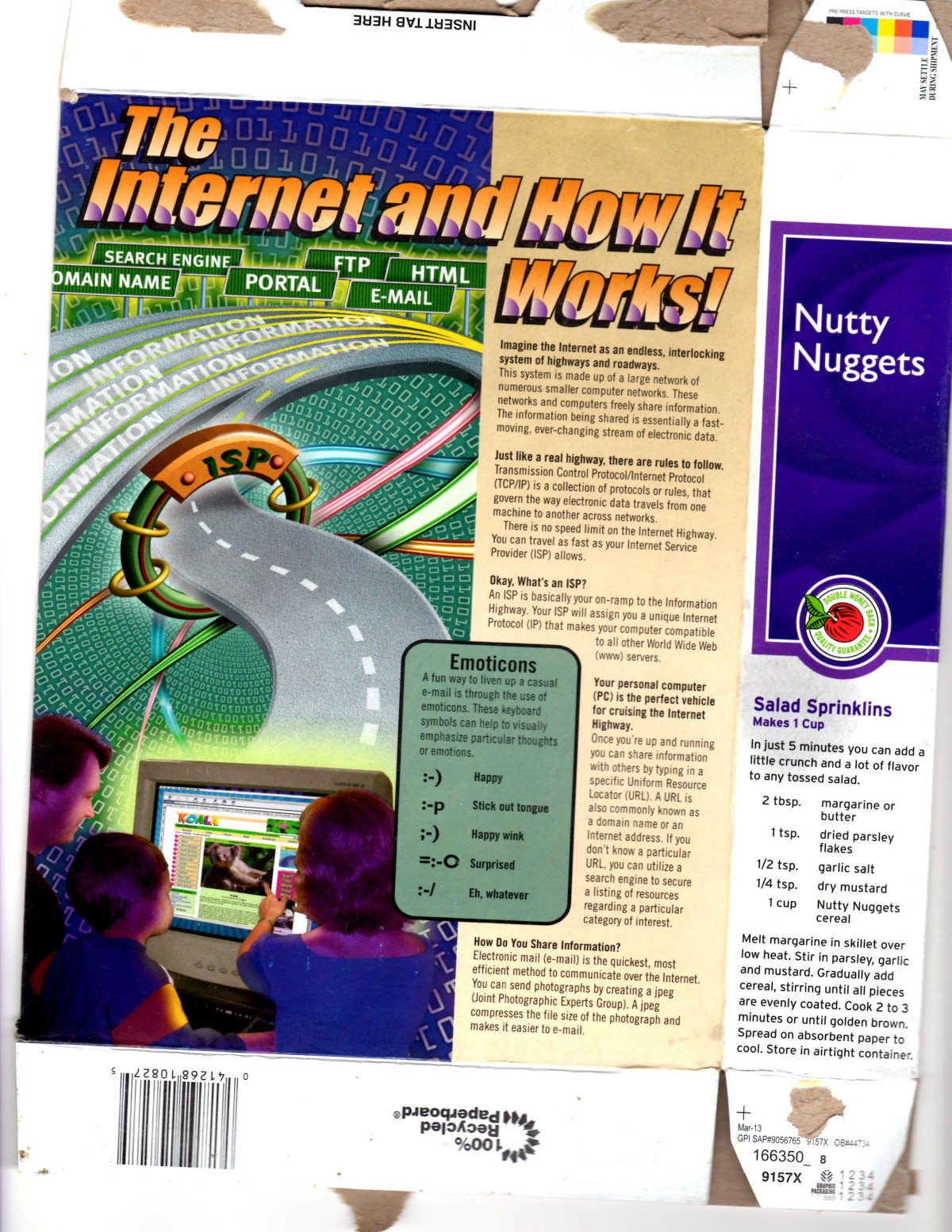Here’s an excerpt from a paper I wrote about Snapchat, where I site this week’s reading.
(I took the citations out but I think it’s still pretty clear what is quoted)
Late senator Ted Stevens went down in history after referring to the Internet as a “series of tubes”. If it is rendered utterly impossible to view the entire object, it becomes theoretically, and literally, harder to grasp. Back to poor, misinformed Senator Stevens. You can almost start to see where he is coming from. For a while the technology industry depended heavily on the advancement of physical hardware – CPUs, monitors, keyboards, mice, TV screens, laptops and phones all rely on a great deal of physical sophistication to function properly. Even appliances and gadgets that are fit solely for a single purpose require this kind of consideration. So why wouldn’t the inside of these objects work in a similar way? This assumption is not entirely wrong nor is it horribly uncommon. In contrast to hardware however, software indicates that something’s value no longer depends on the measure of its physicality. Google, one of the world’s seven largest cloud storage companies, has recently compared itself to a bank. Luckily, there is enough discrepancy in this metaphor to keep it from becoming a total reality. Yet it still holds true in the sense that cloud storage companies do, like banks, rely wholly on trust. This lack of physicality can be “seen” in how much of the Internet relies on Wi-fi, which is still quantifiable in the sense that you must pay for it, but requires no physical apparatus for it to work. Post-Internet artist and theorist Artie Vierkant responds to this collapse of physical space by introducing the idea of expanding digital files to take on physical forms, or “image-objects”. Sure, all of this theory made for a fascinating press release in whatever gallery space Artie ended up showing in, but its relevance continues in how we approach designing for the future or, in other words, “moving from existing to preferred situations”.
